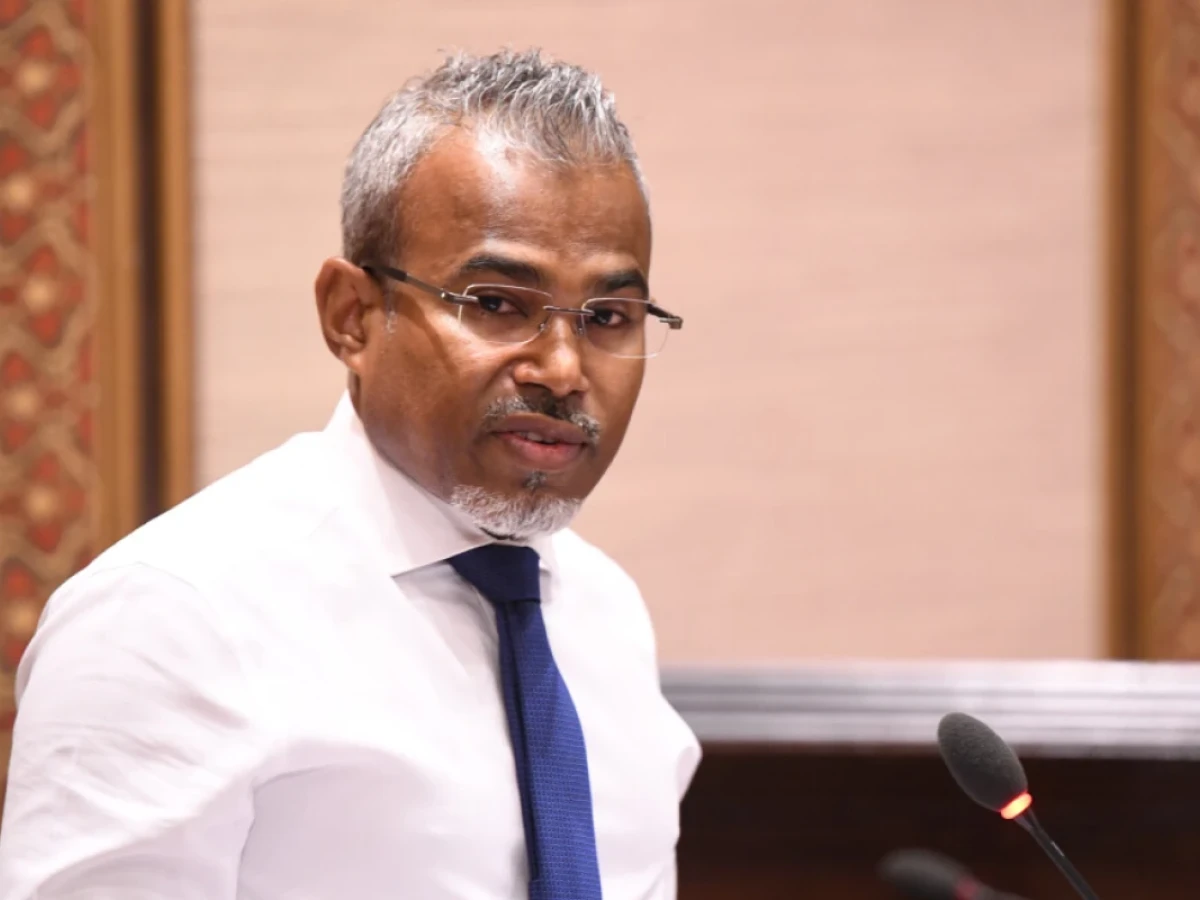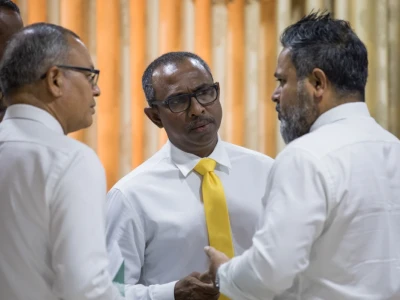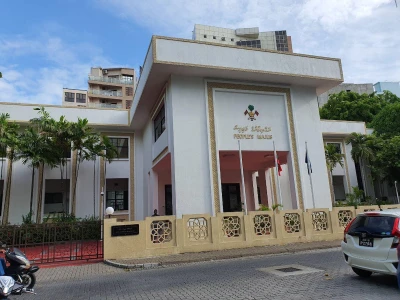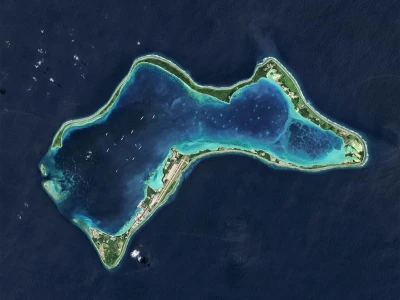
AG decries no-confidence motion as politically motivated
In his nine-page defence, Riffath responded by pointing out the detailed shortcomings in the no-confidence motion.
Top Stories
-
Yameen pledges no political demands if Zariyand elected mayor
-
Nasheed urges Mauritius dialogue but firm stance on Chagos
-
MP Shameez criticises political appointees over election campaign
-
Police seek prosecution of MDP MP, activists over October protest
-
Met forecasts lower rainfall across Maldives in March
Attorney General (AG) Ibrahim Riffath said on Wednesday that the no-confidence motion filed against him in parliament over the government's decisions in the delimitation of the territorial waters between the Maldives and Chagos is aimed at achieving a particular political purpose.
The matter has been placed on the agenda for Wednesday’s session, 14 days after the parliament issued him a notice to respond to the no-confidence motion filed with the signatures of 13 MPs. However, instead of appearing before parliament and replying, Riffath decided to file a written reply.
The parliament's general committee, which is responsible for determining and revising the procedure for the functioning of the parliament, had decided in this case only the procedure to be followed if the minister appears at the parliament. Therefore, due to the procedural issue, the parliament was adjourned to discuss it with the leaders of the political parties instead of hearing Riffath’s defense.
Under Article 101 of the constitution, a minister has the right to appear before parliament or present a written defence in the event of a no-confidence motion.
In his nine-page defence, Riffath responded by pointing out the detailed shortcomings in the no-confidence motion.
Riffath's reply states:
-
His no-confidence motion is baseless
-
It is clear that it is an attempt to mislead the public and serve a particular political purpose.
"The case filed against me is based on the discharge of the responsibility conferred on me in lieu of what I have done or left without doing in the discharge of my duties... It is a case where the rationale taken by me in making the decision and/or the manner in which I interpreted the law is being questioned," he said.
"Every legal issue has a legal debate in its nature and it is not illegal to interpret the law in a particular way.
Riffath's defence further points out:
-
In discharge of duties, questioning the manner in which the AG has thought or interpreted the law in cases referred to the courts and in advising the government is not in the spirit and purpose of the right to question ministers and take a vote of no confidence in a minister
-
The fact that one can interfere with the decisions taken by the AG in discharge of his constitutional duties is in violation of the constitutional authority vested with the AG
-
Only courts have the power to decide on the decisions taken by the AG and how the law is interpreted
"It is a constitutional power vested in the judiciary. It is not of the nature of parliament or legal responsibility in any form," Riffath defended.
The no-confidence motion against Riffath was filed with the support of PPM-PNC, speaker Mohamed Nasheed's Fikuregge Dhirun faction and MNP.
They cited as a reason for Riffath's removal:
-
It is the responsibility of the Attorney General to protect the highest interests of the country through constitution and laws; Riffath has neglected to protect the country's exclusive economic zone
-
It is the duty of the Attorney General to advise on legal matters; it has not been done properly
-
Riffath did not act in the interest of the Maldives in dividing the disputed territory between Mauritius
-
The country's economic zone is defined by law; it is illegal to change the territory without the parliament's consent




